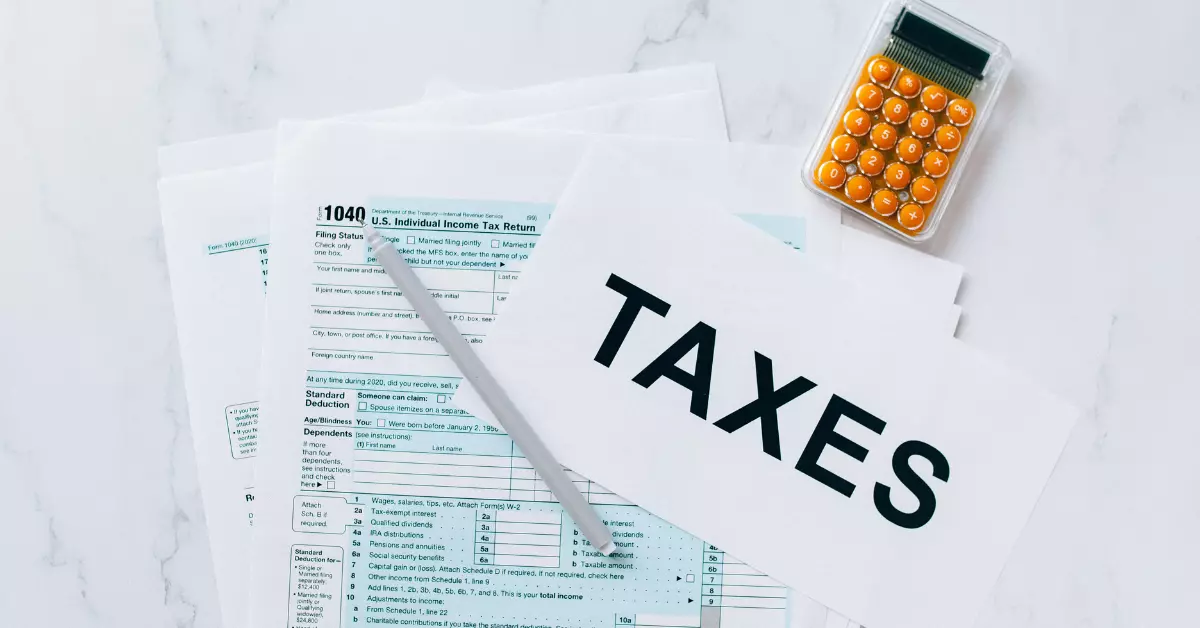Landlords pay taxes on their rental income, property taxes, and potentially other taxes related to their rental property. The amount they pay varies depending on the location and value of the property, as well as other factors such as rental income and expenses incurred.
In this article, we will explore the different types of taxes landlords pay and provide some tips on how to minimize them.
So if you’re a landlord or considering becoming one, read on to learn more about taxes on rental properties.

Understanding The Basics Of Landlord Taxes
As a landlord, you have certain tax obligations that you need to fulfill. Understanding the basics of landlord taxes can not only help you avoid penalties and fines but also help you maximize your deductions and credits.
Different Taxes That Landlords Incur
Landlords are subject to various taxes, some of which are:
- Federal income tax: Landlords must file their taxes using schedule e, which reports rental income, expenses, and depreciation.
- Self-employment tax: If a landlord’s rental activity is considered a trade or business, they are subject to self-employment tax.
- State and local income tax: Most states and some cities impose an income tax on rental income.
- Property tax: Landlords are responsible for paying property taxes on their rental property.
What Is The Purpose Of Each Tax?
Each tax has a different purpose:
- Federal income tax: This tax is used to fund various federal programs and services.
- Self-employment tax: This tax is used to fund social security and medicare programs for self-employed individuals.
- State and local income tax: This tax is used to fund state and local programs and services.
- Property tax: This tax is used to fund local programs and services, such as schools, roads, and public safety.
How Much Tax Is Due Each Year?
The amount of tax due each year depends on factors such as the landlord’s income, deductions, and credits. Here are some key points to consider:
- Rental income is taxed at the landlord’s marginal tax rate (the highest tax rate they pay).
- Landlords can deduct expenses such as mortgage interest, property taxes, repairs, and maintenance from their rental income.
- Landlords can also take advantage of certain credits, such as the low-income housing tax credit and the residential energy efficient property credit.
Deductions And Credits Available For Landlords
As mentioned earlier, landlords can deduct certain expenses and take advantage of credits to reduce their tax liability. Here are some deductions and credits available to landlords:
- Mortgage interest deduction.
- Property tax deduction.
- Depreciation deduction.
- Repairs and maintenance deduction.
- Home office deduction.
- Low-income housing tax credit.
- Residential energy efficient property credit.
Calculating Taxes Owed As A Landlord

Methods For Calculating Taxes Owed
As a landlord, it’s essential to calculate taxes accurately to avoid any future legal issues. Here are some methods for calculating taxes owed:
Gross rent method
This method involves subtracting the expenses related to the rental property from the annual rental income. It’s a straightforward method, but it may not provide an accurate representation of tax liability.
Actual expenses method
This method entails adding up all expenses related to the rental property, such as repairs, maintenance, and utilities, and subtracting them from the rental income. It’s a more accurate method, but it requires accurate record-keeping.
Understanding Depreciation And How It Affects Taxes
Depreciation is a tax deduction that landlords can take for the gradual decrease in their rental property’s value over time. Here’s how depreciation affects taxes:
- Depreciation reduces taxable income: Landlords can take depreciation as a deduction on their taxes, which ultimately reduces their taxable income.
- Depreciation recapture: If landlords sell the property, they will have to pay back the depreciation they took as a tax deduction. This is known as depreciation recapture.
Common Mistakes Landlords Make When Calculating Taxes
Landlords may make a few common mistakes when calculating their taxes. Avoid these errors to prevent repercussions from the IRS:

Misunderstanding deductible expenses
Landlords may think all expenses related to the rental property are deductible, but that’s not true. Understanding which expenses can be written off is crucial.
Not tracking expenses accurately
Accurately tracking and recording expenses is essential to claim the correct deductions.
Not taking advantage of depreciation
Depreciation is a considerable tax deduction that sometimes landlords overlook.
Explaining Irs Schedule E In Detail
Schedule e is the form landlords use to report their rental property income and expenses. Here’s what you need to know:
- Income section: Landlords report their rental income on the first part of the form.
- Expense section: Landlords can add expenses such as mortgage interest, property taxes, insurance, repairs, and depreciation in the second section of the form.
- Depreciation section: The third section of schedule e is where landlords report their depreciation expenses.
Frequently Asked Questions Of How Much Do Landlords Pay In Taxes?
How Much Do Landlords Pay In Taxes Annually?
Landlords in the us pay an average of $3,500 in property taxes annually. The amount varies by state and location.
Can Landlords Deduct Property Taxes On Their Taxes?
Yes, landlords can deduct property taxes from their taxable income. The amount of deduction depends on the property value and type.
Are Landlords Required To Pay Sales Tax On Rental Income?
It depends on the state. Some states require landlords to pay sales tax on rental income, while others do not.
Can Landlords Offset Their Rental Income With Expenses For Tax Purposes?
Yes, landlords can offset their rental income with expenses such as repairs, maintenance, and property management fees for tax purposes.
Conclusion
When you’re a landlord, understanding tax obligations isn’t just smart—it’s essential. Your income could take a hit if you’re not prepared for the tax bite, and that can change the game. Empower yourself with knowledge and navigate your financial landscape like a pro.
Reference
https://www.irs.gov/taxtopics/tc414
